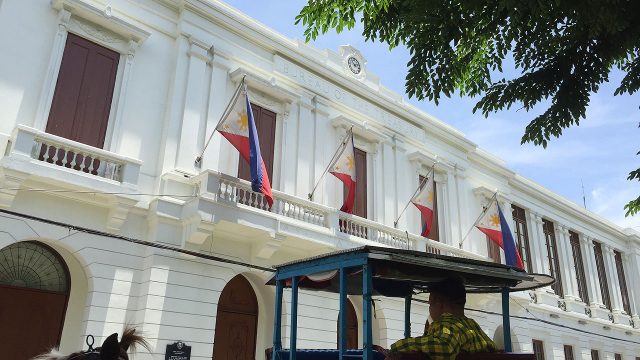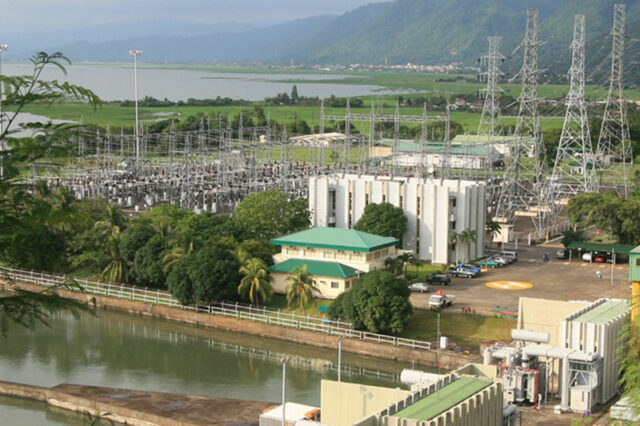Gov’t fully awards bonds at slightly higher rates
THE GOVERNMENT made a full award of the reissued 10-year Treasury bonds (T-bonds) it offered on Tuesday as the offer was met with ample demand, with rates broadly in line with comparable secondary market levels.
The Bureau of the Treasury (BTr) raised P30 billion as planned via its offering of reissued 10-year bonds as total bids reached P57.732 billion, or nearly twice the amount placed on the auction block.
This brought the total outstanding volume for the series to P425.6 billion, the Treasury said in a statement.
The bonds, which have a remaining life of seven years and three months, were awarded at an average rate of 6.124%. Accepted bid yields ranged from 6.075% to 6.14%.
The average rate for the reissued papers rose by 4.3 basis points (bps) from the 6.081% fetched for the series’ last award on May 6 but was 62.6 bps lower than the 6.75% coupon for the original issuance.
This was also 5.17 bps above the 6.0723% quoted for the seven-year bond — the benchmark tenor closest to the remaining life of the papers on offer — and 3.2 bps higher than the 6.092% seen for the same bond series at the secondary market before Tuesday’s auction, based on PHP Bloomberg Valuation Service Reference Rates data provided by the BTr.
A trader said the government fully awarded its offering of reissued 10-year bonds as the auction was met with “decent demand,” with rates fetched “well within market expectations.”
“The seven-year T-bond’s average auction yield was slightly higher after reduced odds of future Federal Reserve rate cuts recently amid some progress on US-China trade negotiations, better-than-expected US non-farm jobs created recently, and as global crude oil prices corrected to new two-month highs,” Rizal Commercial Banking Corp. Chief Economist Michael L. Ricafort said in a Viber message.
Federal Reserve policymakers have already signaled they are in no rush to cut interest rates, and a government report on Friday showing the labor market is far from crumbling amid big trade policy changes only cements that stance, Reuters reported.
The Labor department’s monthly employment report showed the unemployment rate held steady at 4.2% last month. Employers added 139,000 jobs, which combined with downward revisions to prior months’ estimates showed a cooling in labor demand but nothing abrupt; by comparison, job gains averaged 160,000 last year.
US President Donald J. Trump ratcheted up his calls for rate cuts.
“Go for a full point, Rocket Fuel,” Mr. Trump said in a post on Truth Social that urged the Fed to lower rates by 100 bps. The president added that the Fed could simply increase rates again if inflation reignited.
But the latest job growth reading is already giving Fed policymakers more comfort about holding the US central bank’s policy rate steady as they watch to see how higher import tariffs affect the economy.
It “was a solid report and I was pleased with it,” Philadelphia Fed President Patrick Harker told CNBC, adding that now was the time for the Fed to hold policy steady.
Fed officials have telegraphed that they intend to do just that at their June 17-18 policy meeting.
Financial markets have been betting the Fed will wait until September to cut rates and will deliver a second reduction in borrowing costs by December; after the jobs report, they trimmed their bets on a possible third rate cut by the end of this year.
Fed officials are in a blackout period ahead of the June 18 policy decision.
Meanwhile, trade talks between the United States and China were set to extend to a second day, with tentative signs that tensions between the world’s two largest economies could be easing.
Mr. Trump put a positive spin on the talks, which wrapped up for the night on Monday and were set to resume on Tuesday.
Treasury Secretary Scott Bessent, Commerce Secretary Howard Lutnick and US Trade Representative Jamieson Greer were set to meet for the second day with their Chinese counterparts.
Any progress in the negotiations is likely to provide relief to markets given that Mr. Trump’s often shifting tariff announcements and swings in Sino-US ties have undermined the world’s two biggest economies, disrupted supply chains and threaten to hobble global growth.
The BTr wants to raise P150 billion from the domestic market this month, or P60 billion via Treasury bills and P90 billion via T-bonds.
The government borrows from local and foreign sources to help fund its budget deficit, which is capped at P1.54 trillion or 5.3% of gross domestic product this year. — Luisa Maria Jacinta C. Jocson with Reuters












